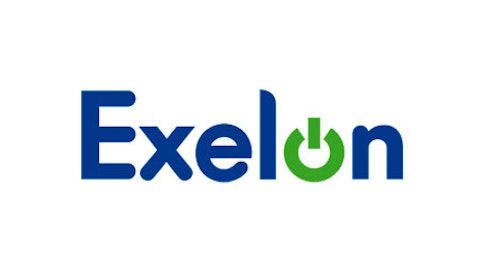Exelon Corporation (NYSE:EXC)’s quarterly results were nothing to be happy about, and the dividend cut further added to investors’ concerns. Dividend income seeking investors might not be very happy, but I believe long-term investors do have a reason to smile. Let’s see how.
Current numbers
Exelon earned $0.64 per share, down from $0.91 per share in the same quarter last year. Revenue surged 44% to $6.28 billion from $4.36 billion. The revenue figures look great on a comparative basis, but were not even close to the consensus estimate of $8.26 billion as the top line should have improved post-Constellation acquisition. In short, the results were bad.

Nothing currently seems to be going in the company’s favor; and to investors’ despair, dividends were slashed by 40% from $0.53 to $0.31. Though the dividend has taken a major cut, the yield still stands at 3.6%, which is good keeping in view what its peers pay. Moreover, the cash that is not flowing to investors is being invested on projects that will eventually benefit stakeholders only.
The company has the largest nuclear-power plants in North America, with no one even close to its capacity and potential to extract benefits like it. Exelon has filed applications for approval of two new 1,100-MW nuclear reactors, which are $12-18 billion projects in total. These projects will start delivering post 2022, which definitely makes sense for far-sighted investors as clean energy is the current focus of the nation.
Keeping in view the high investment and strict regulatory framework, the company is currently trying to grow its nuclear generation capacity by investing in nuclear uprates. The installation will equate company’s capacity to installing a new plant, at relatively very low costs. To benefit from politically popular green energy, Exelon is also investing to grow its solar and wind energy portfolio.
Natural gas, which is second in Exelon’s list, produces 28% of the company’s total energy generation. The natural gas prices are presently at an all-time low but they should improve, as their demand should increase, since coal fired power facilities switch to natural gas.
A look at the competitors
Utility company PPL Corporation (NYSE:PPL) is also moving towards cleaner source of energy by adopting the smart grid technology. In the last four years, the company has been spending on its capex in the range of 16%-19% of sales. Exelon has comparatively a very low debt burden but PPL has a debt-equity ratio of 1.75 times which pushes its current debt rating to “BBB”.
The company has a dividend yield of 5% which is the highest amongst its peers. Apart from growth in net income, PPL has increased its payout ratio and has a decent dividend coverage ratio to support the stability of its future dividends. The company has grown both its net income and revenue at 50% and 56%, respectively, which is an anomaly for utility stocks. The company’s stock price is currently near its 52-week high, and looks fairly priced at a P/E ratio of 11 times.




